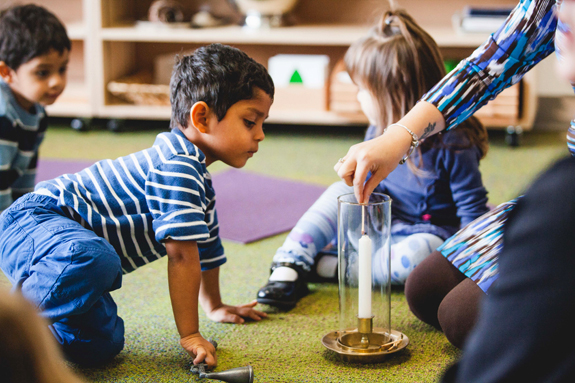The Philosophy and Method
Young children thrive with order in their routines, relationships and surroundings. They love repetition and have amazing powers of concentration. Dr. Maria Montessori's first students demonstrated that they were refreshed after deep concentration, and actually preferred their work with the learning materials to playing with "conventional" toys, with which they soon become bored. After experimentation with rewards and punishment, Dr. Montessori found that neither was useful or effective; that instead, a deep respect for each child's personal dignity enhanced responsibility. Children's behaviour was calmed and improved through their self-guided work.
The educational philosophy of Dr. Maria Montessori inspires the development of the child in a safe, supportive, culturally diverse environment that gives children the freedom to explore, cooperate, create, and grow.
Montessori methods and materials were created to provide for the needs of the child at each stage of growth. By observing the child, a Montessori-trained teacher determines when the child is ready to be guided to the next level of exploration.

In the prepared learning environment of the Montessori classroom, children gain independence, self-confidence and inner discipline through their choice of purposeful activities. It is a calm, trusting, non-competitive atmosphere wherein children independently choose the work that interests them. The freedom to choose activities helps the children develop concentration, which is essential for all further learning. Children delight in learning and build a firm foundation of work habits. Mixed age groups provide opportunities for peer learning and teaching. Respect for others and their work is fostered in a Montessori classroom.
The Montessori method of education has proven effective across cultural boundaries and socioeconomic levels. In North America alone there are approximately 5,000 private Montessori schools and 200 public Montessori schools.